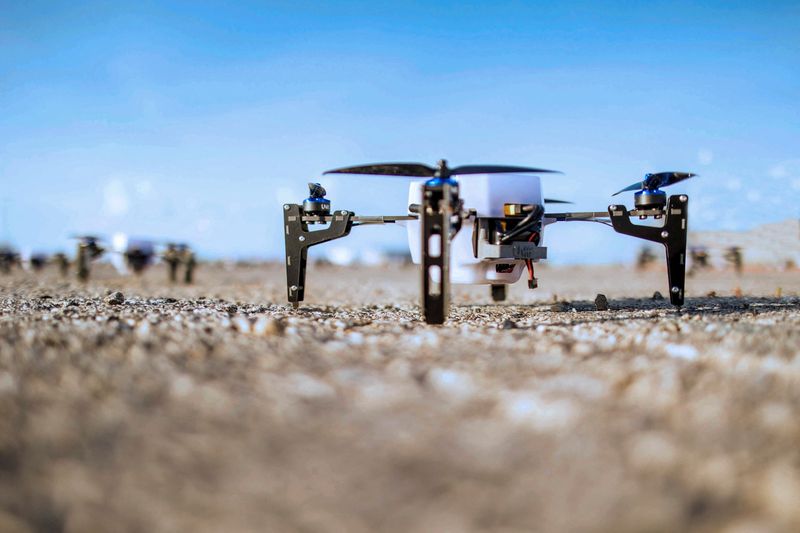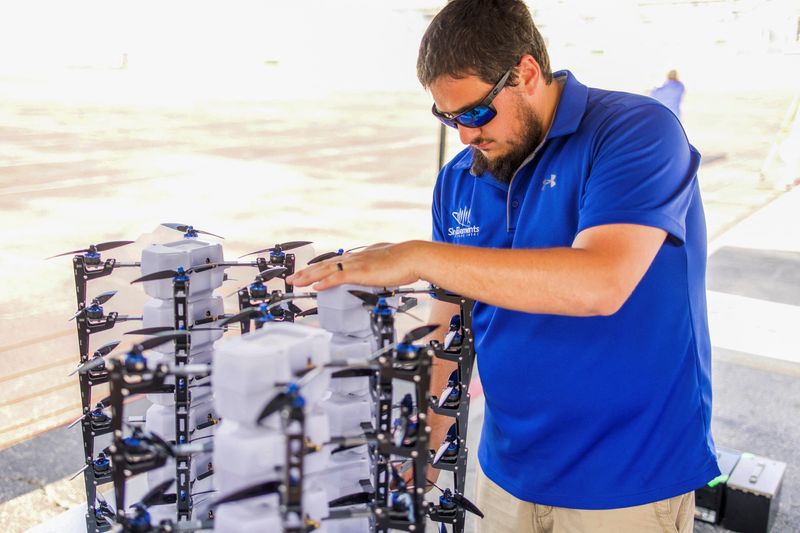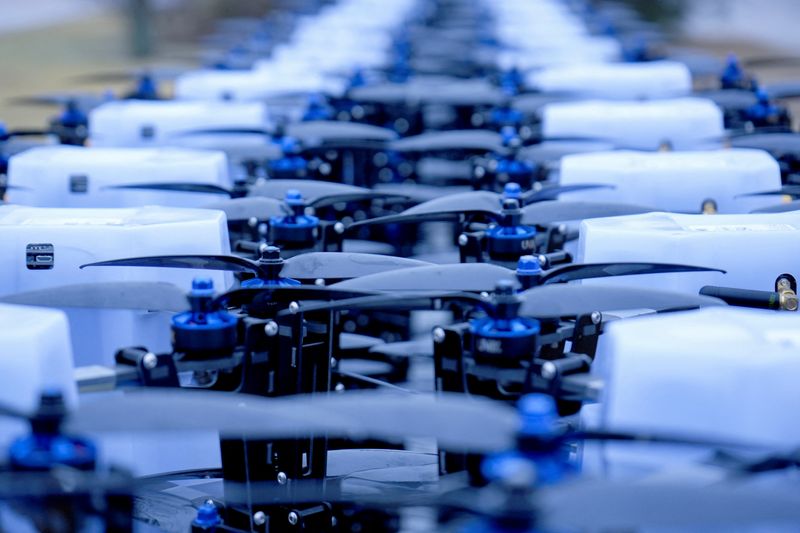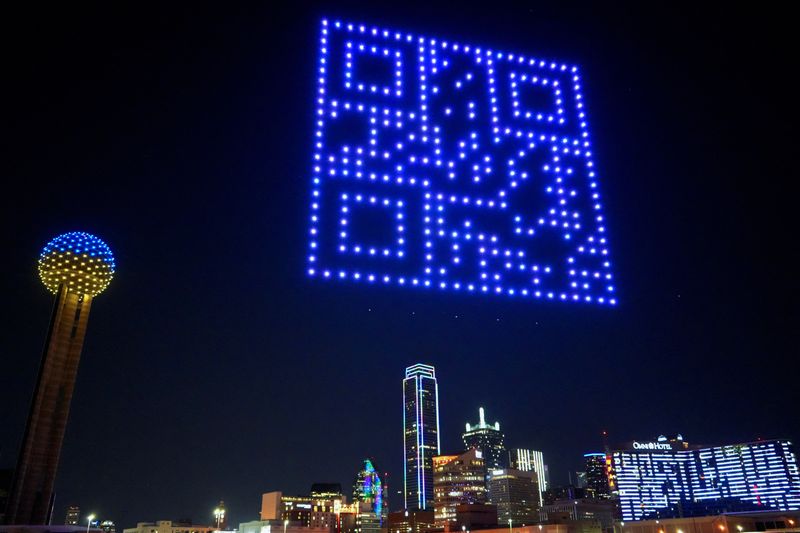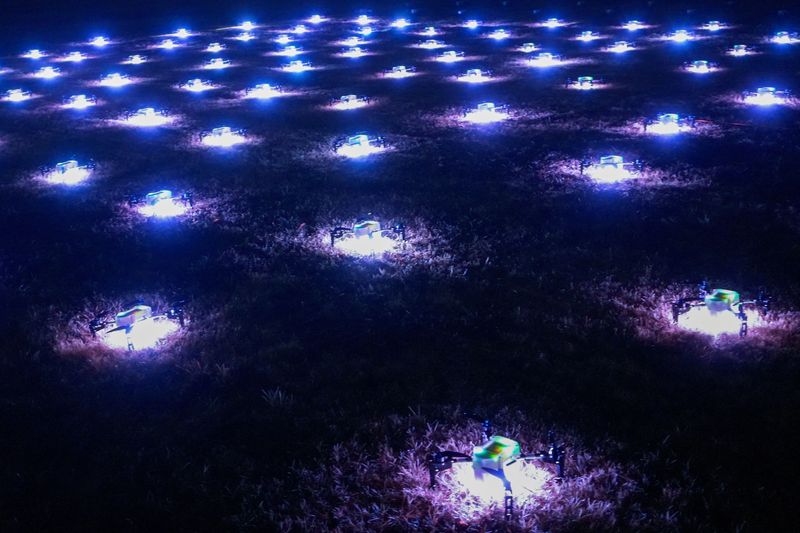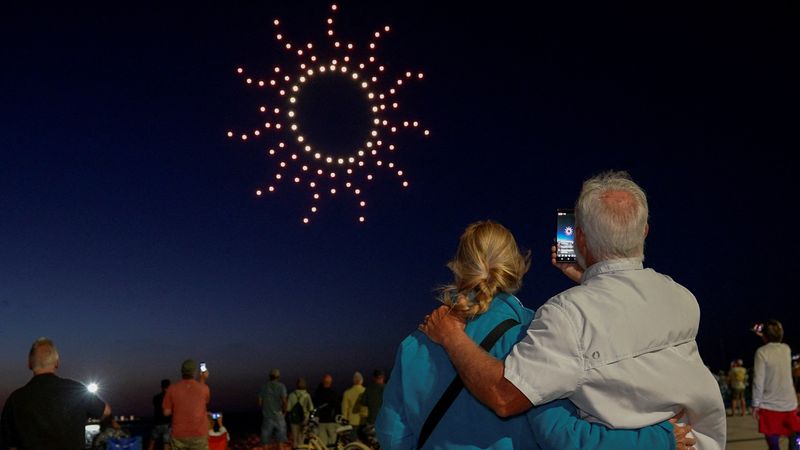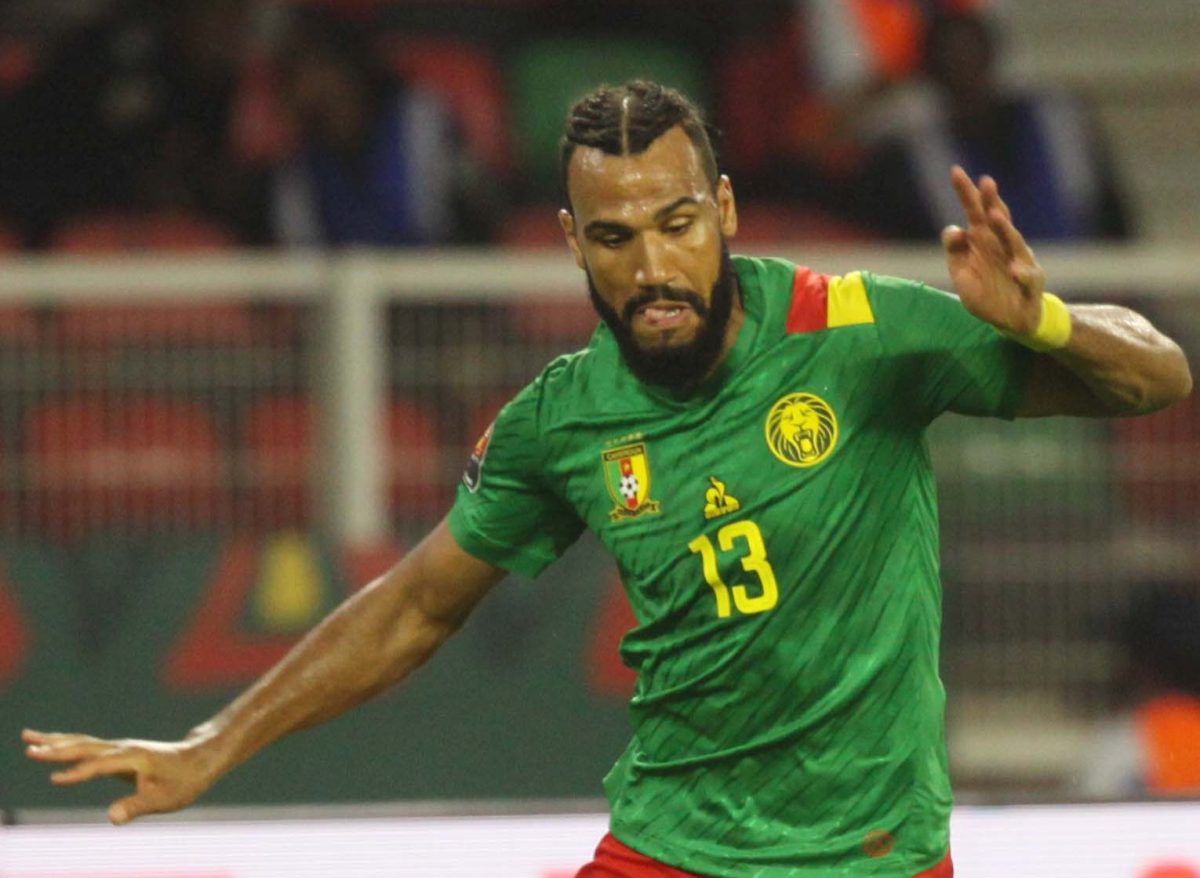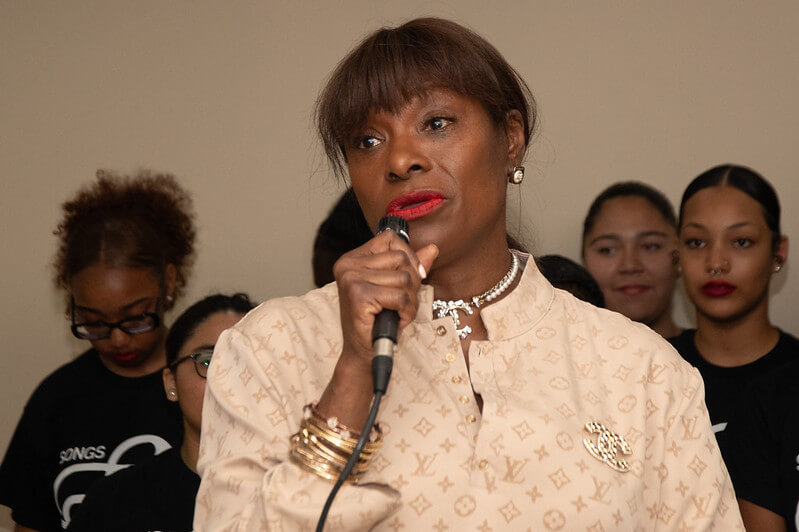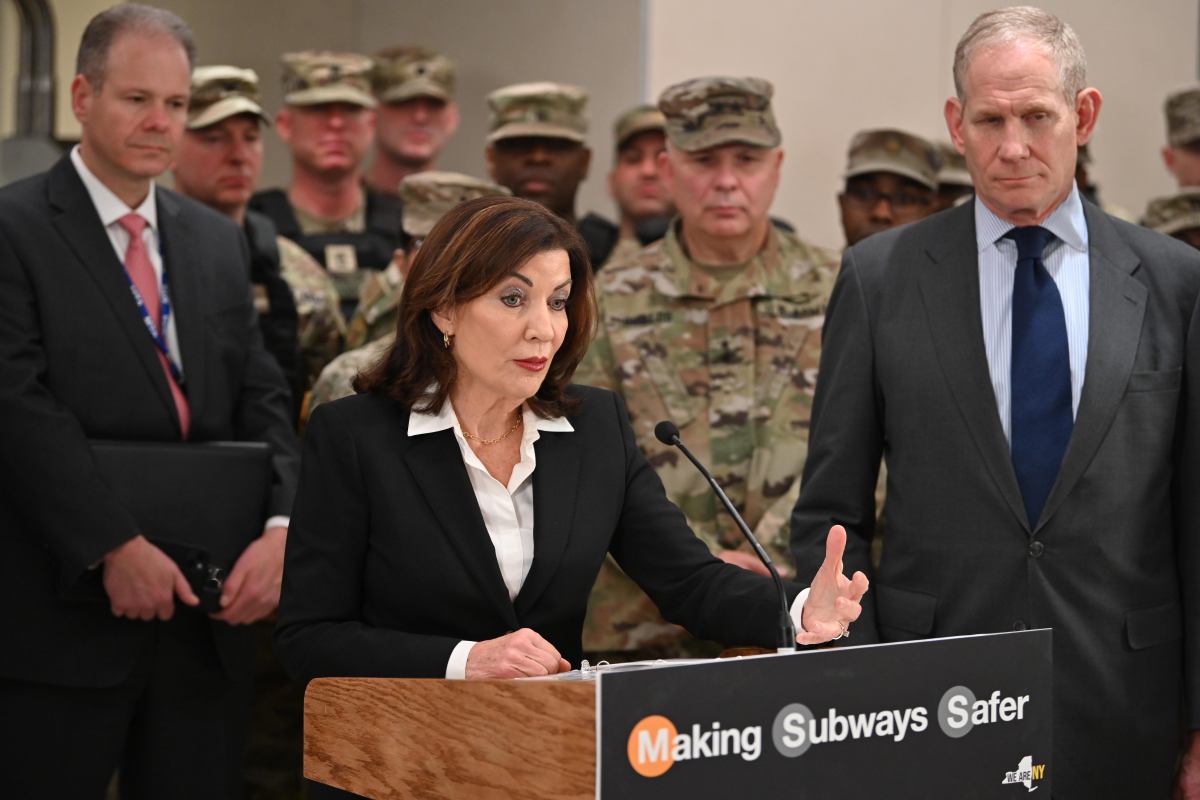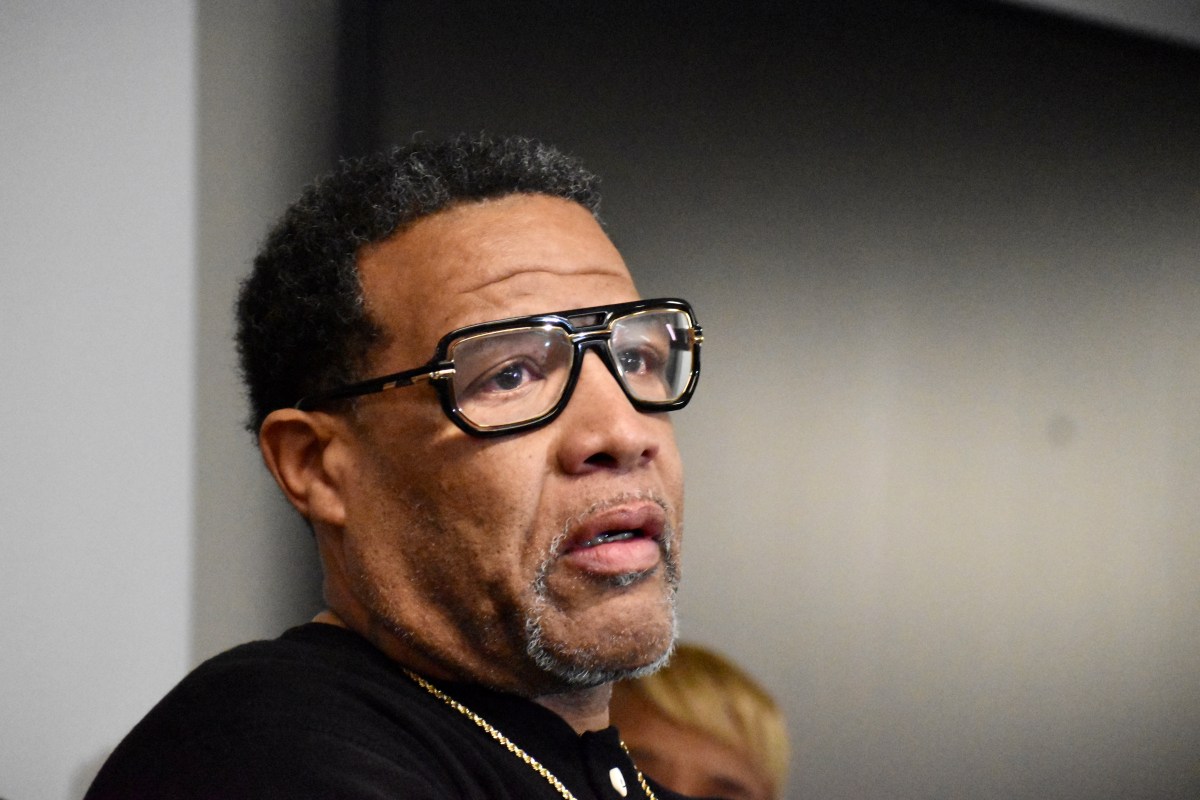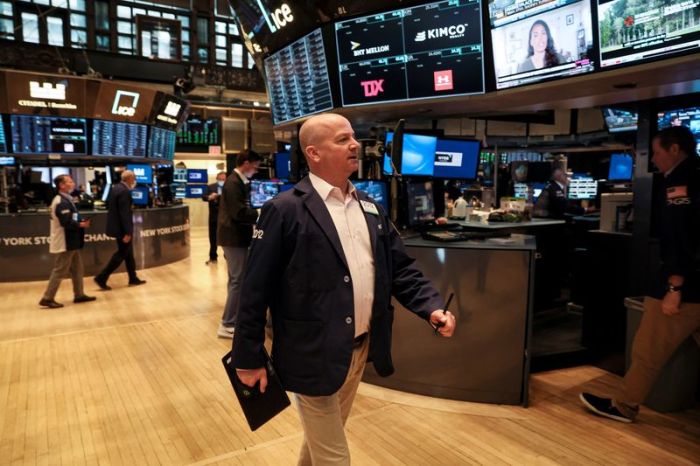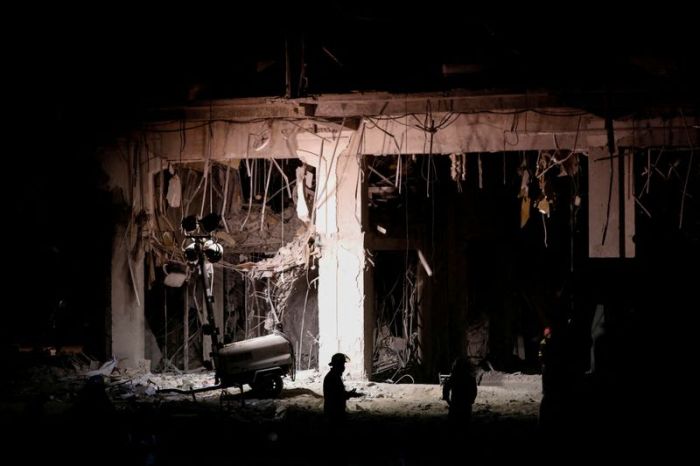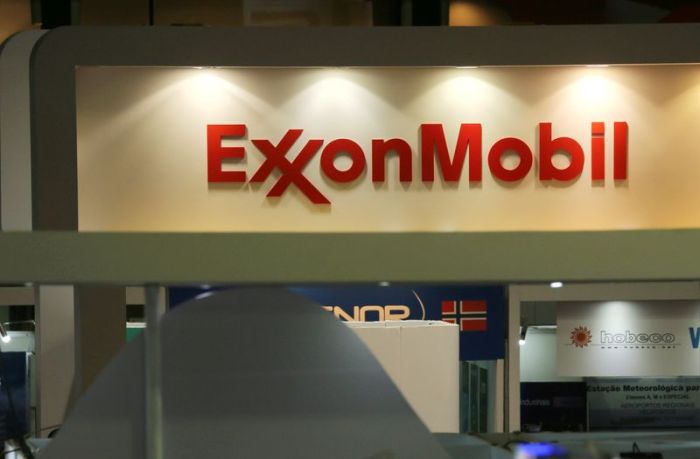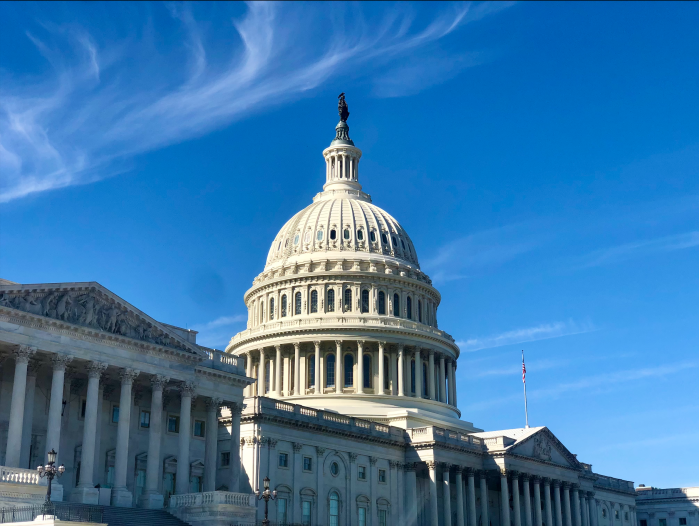(Reuters) – When the Caldor Fire raced toward the southern shore of Lake Tahoe last year, its 100-foot (30-meter) flames spread across the tree canopy. Miles away, towns on the north shore took notice.
In response, three communities on the California-Nevada border are switching from the traditional fireworks show for the U.S. Independence Day holiday this July 4 to a drone light show, a growing trend across the United States that has overwhelmed drone companies.
“The conversation we had was: ‘Is throwing lit objects up into the sky in the height of the fire season the best thing for us to do?'” said Andy Chapman, president of the Incline Village Crystal Bay Visitors Bureau, which coordinates the July 4 show for Incline Village, Nevada.
With Western states enduring a historic drought, some towns are rejecting fireworks as a wildfire risk, even though nearly all civic fireworks displays are safely monitored by firefighters.
Incline Village and the neighboring California towns of Kings Beach and Tahoe City switched to drones after the Caldor Fire burned for 69 days, scorching 221,835 acres, destroying 1,003 structures and forcing the evacuation of 50,000 people.
A typical drone show has no bombs bursting in air but dozens or hundreds of tiny lit flying machines executing maneuvers to music, forming improbable, multicolored and shifting designs suspended in the night sky.
The dozens of July 4 drone shows scheduled this year amount to a fraction of the 16,000 displays that the fireworks industry estimates it will put on for the holiday.
Jeff Clarmo, vice president of sales for Pixis Drones, said his company receives inquiries every day and tells callers he cannot help.
Sky Elements Drone Shows will perform 20 to 25 shows around the Fourth of July this year, up from one last year, said Preston Ward, the company’s chief pilot and general counsel.
Matthew Quinn, owner of Great Lakes Drone Company, said his company has stopped booking Fourth of July shows east of the Mississippi River in order to direct his business toward the West where there is greater fire danger.
Great Lakes received nearly 30 requests for around the Fourth of July this year but can only do eight, Quinn said. Last year it performed four shows out of eight requests.
“Drone shows are going to be everywhere. But at the moment, they’re still quite expensive,” said Nils Thorjussen, owner of Verge Aero, which is partnering with a Mexican company to bring in drones to meet July 4 demand.
Verge Aero generally charges $25,000 minimum for a drone spectacular, Thorjussen said. By comparison, a small town can put on a fireworks display for $15,000 to $20,000, according to the fireworks trade association. On the high end, Verge Aero can put on a $100,000 show while big city fireworks displays can easily top $1 million.
Julie Heckman, executive director of the American Pyrotechnics Association, said drones were not yet considered a serious threat to fireworks displays, a $375 million industry in 2019 before the coronavirus pandemic, as they lack the “multisensory” spectacle of colors, concussions, and the smell of smoke.
“Drones are pretty,” Heckman said, “but they’re kind of boring.”
(Reporting by Daniel Trotta; editing by Donna Bryson and Aurora Ellis)

